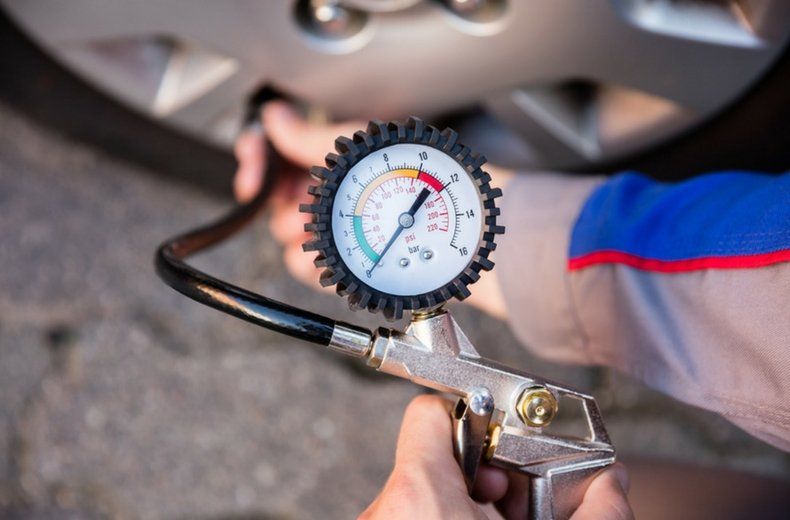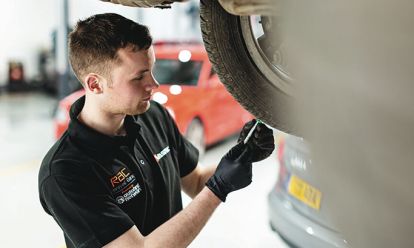But don’t worry, there are some simple steps you can take to give your motor the best chance of reaching its golden years.
With the help of RAC patrol ambassador, Chris Burgess, we’ve compiled a list of easy-to-follow tips to minimise running costs and keep your car on the road for years to come.
1. Maintain your car’s battery
If you don’t use your car for long periods of time, the battery will degrade and go flat.
Consider using a trickle charger to keep the battery topped-up if your car is left in a garage for an extended period of time or a battery conditioner if it appears to hold less charge than usual.
If your car battery does go flat, having to jump start a car puts additional strain on the battery and may damage the engine management system and other delicate electronics: a double-whammy of increased wear.
To look after your battery without a trickle charger, you should try to drive your car at least once a week if possible – particularly in winter.
2. Change filters regularly
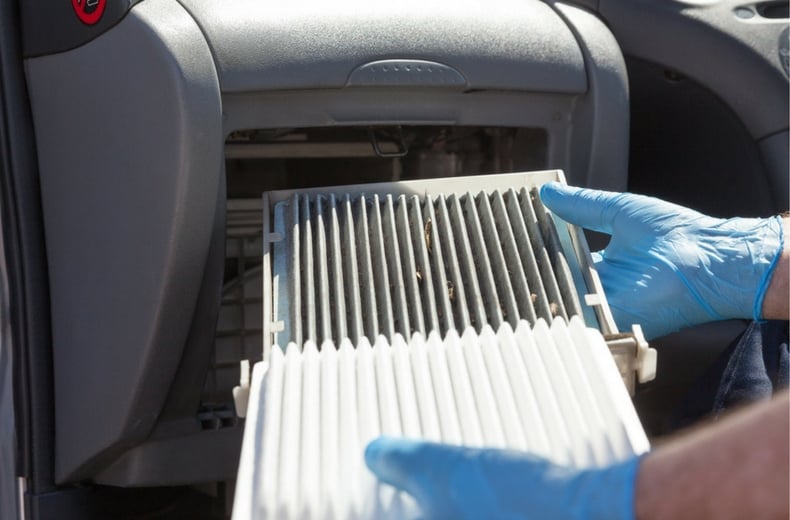
Your car’s oil filter and air filter become clogged over time, so it’s important to renew them regularly.
They should be replaced as part of scheduled car servicing, but both are relatively simple jobs – particularly an air filter swap – so you might want to give it a try yourself and save money in the process. You can even get a mobile mechanic to do a service from the convenience of your driveway.
You can often prolong the life of the air filter by washing it, too. Consult your handbook for advice on filter cleaning and changes, and be sure to use genuine parts. Cheap, poor quality filters could damage your engine in the longer term.
Find out more about what’s involved in a car service and whether you can do some jobs yourself.
Check to see if your vehicle needs an oil change.
Service, repair or MOT?
You can trust the RAC with our local approved garages and NEW mobile mechanics.
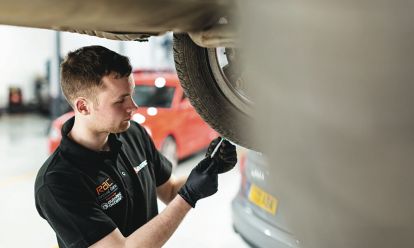

3. Drive smoothly… most of the time
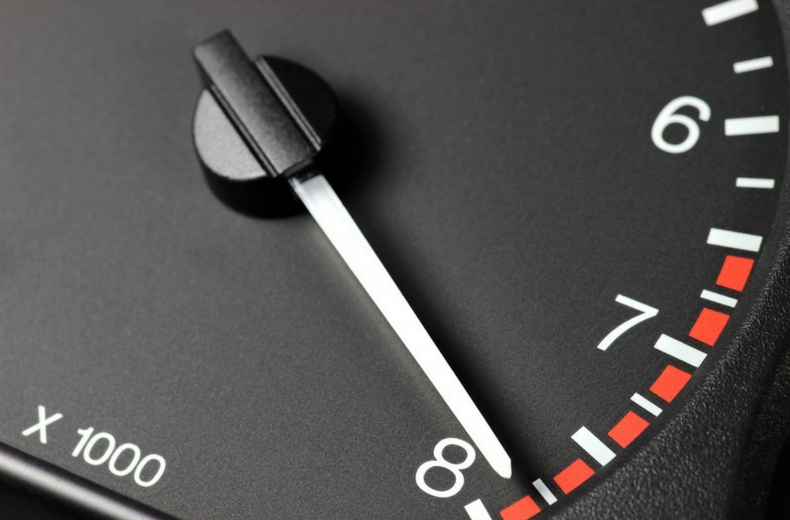
Driving with ‘mechanical sympathy’ is something you should practise at all times. That means using the controls of your car while understanding how it works.
Doing so will reduce component wear and you’ll make your fuel go further. Simple things like using the steering wheel, gearbox and pedals smoothly are key, along with looking well ahead to reduce the need for sudden braking.
Our guide on how to save fuel offers many more tips to improve your driving style to get the most out of your car and its fuel economy.

The more aggressive you are on the pedals the higher your fuel and repair bills are likely to be. Driving smoothly is kinder to your car and the environment, plus accelerating and decelerating in a controlled manner and anticipating the road ahead will save you pounds on your fuel bill.
RAC patrol Chris Burgess
That said, if you never rev your engine fully, carbon deposits can build up and foul the valves, intake manifold and other parts, reducing efficiency and potentially causing a misfire.
You should therefore allow your engine to rev to the redline at least once every few hundred miles – but only when the oil is warm and you’re on a quiet road.
Diesel cars may also have problems with clogged diesel particulate filters (DPFs), which are designed to trap harmful exhaust emissions.
A longer motorway run once a month will help clear them.
4. Use your air conditioning
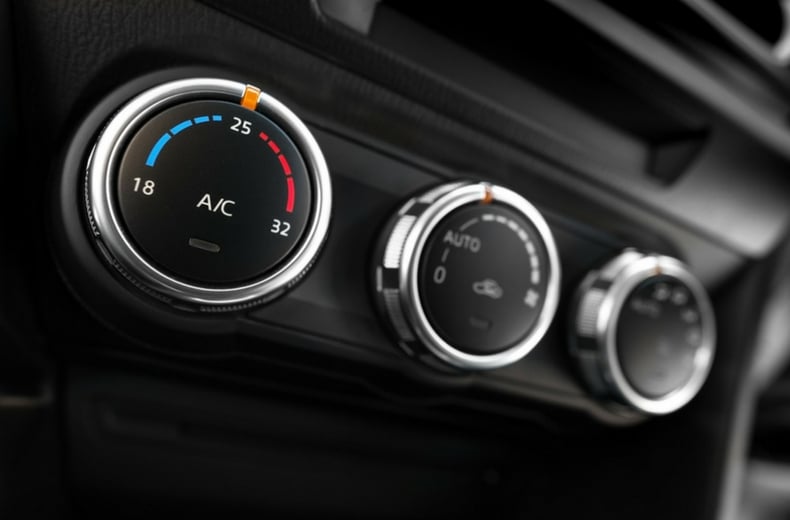
‘Use it or lose it’ is a phrase that could be applied to air conditioning.
Air-con systems inevitably leak refrigerant gas over time, particularly if they aren’t used regularly.
Leaving your air-con off may save fuel, but you could end up with a bill for air conditioning re-gassing instead (often around £50, available at most garages and fast-fit centres).
And yes, that means occasionally letting your vents blow cold in winter, too.
Find a garage near you if you think you need a re-gas.
5. Replace spark plugs and leads
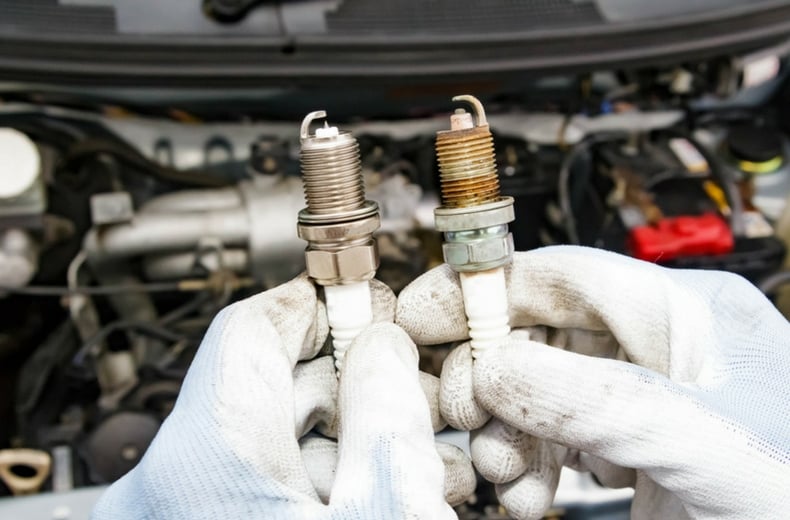
As cars become ever more complicated, drivers are understandably less inclined to do their own servicing.
However, replacing spark plugs and high-tension leads is another straightforward job you can do yourself to optimise your engine's performance.
Bear in mind that you should always consult your vehicle handbook beforehand and stick to the service schedule though.
When inspecting a spark plug, check that it has:
- a light brown electrode and insulator
- no signs of melting
- no signs of wear or deposits.
A spark plug in a poor condition either indicates wear over time and needs replacing, or can hint at the condition of your engine.
If the plug is relatively new and has developed a significant gap between the electrode and the insulator, then it could be an indication that the engine is under-performing. If that's the case, you should consult your local garage.
If the leads have cracks or show signs of heavy wear, they should be replaced. We recommend using a reputable garage to carry this out, however, if you have the experience and feel confident, you could do it yourself as long as you follow your vehicle handbook's guidelines.
This point doesn’t apply to diesel cars as they don’t use spark plugs.
Use our search tool to find your nearest RAC-approved garage.
6. Top up fluids regularly
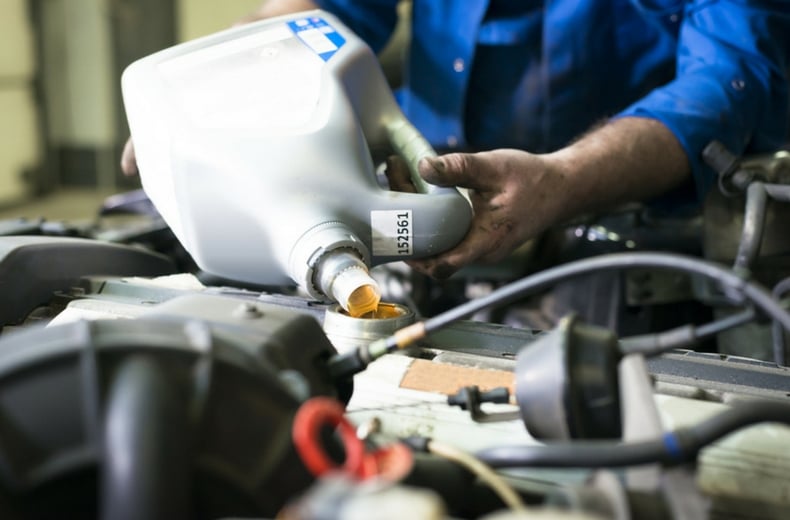
Fluids are your car’s lifeblood and failing to replenish them may have dire consequences.
Check your engine oil and car lubricants once a fortnight by opening the bonnet (with your car on level ground) and removing the dipstick. Give it a wipe with a rag then give it a dip.
When it comes back out, the oil level should be between the minimum and maximum markers – and a light yellowy-brown colour if your car has a petrol engine.
Dark, dirty oil should be replaced. However, diesel engine oil accumulates soot as part of the normal combustion process, so dark-coloured oil isn’t a cause for alarm with a diesel car.
Other areas to check fortnightly include the coolant reservoir, which you should top up with 50% distilled water and 50% antifreeze, and the windscreen washer bottle.
We recommend a shop-bought screenwash for the latter.
Don’t be tempted to use washing-up liquid as it contains salt and other additives that will damage paintwork.

You would be surprised how many cars are running desperately low on oil. I routinely check the coolant and oil level when I attend a breakdown and I often discover that the oil is at the bottom of the dipstick and the coolant is worryingly low. Either can have a catastrophic impact on the engine and yet it’s easy for the driver to keep an eye on these and get into the habit of a fortnightly check.
RAC patrol Chris Burgess
7. Check your tyres
Tyres are arguably your car’s most important safety feature and it’s no exaggeration to say that checking them regularly – about once a week – could save your life.
Under-inflated tyres will also increase fuel consumption, so keep them topped up to the recommended pressures listed in your car’s handbook to save money.
Watch our quick video on how to check your tyre pressure, health and tread depth.
Remember, tyre pressures may be different for the front and rear tyres. Some experts suggest rotating your tyres (i.e. swapping the fronts to the rear, and vice versa) in order to even-out wear and prolong tyre life.
However, in the interests of safety, we recommend using the least-worn tyres on the back axle, as loss of front grip (understeer) is much easier to manage than a rear-end slide (oversteer).

Check the level of tread on your tyres regularly – the legal minimum in the UK is 1.6mm but you should think about changing them when they are between 2mm and 3mm – as the less tread you have, the less effective the tyre becomes. And don't forget to check tyre pressure too, and look out for signs of wear or damage which could result in a blow-out.
RAC patrol Chris Burgess

Cheaper than AA or we’ll beat by 20%^
• Roadside cover from £5.49 a month*
• We get to most breakdowns in 60 mins or less
• Our patrols fix 4/5 breakdowns on the spot

8. Stick to the service schedule
Regular servicing is vital to keep your car in tip-top condition and prolong its life.
Service intervals are based on time or miles driven – once a year or every 10,000 miles, for example.
Check the handbook to find out when your car is due a service and what work is required.
Many modern cars have warning lights on the dashboard to alert you when maintenance is needed, too.
Broadly speaking, you should budget for a ‘minor’ service once a year and a ‘major’ service every two or three years.
A minor service includes changing the oil and oil filter, and replacing other fluids if necessary.
Depending on the car and mileage, a major service may also cover replacement of the air filter, spark plugs and cambelt.
The number of tasks included in even a minor service is numerous, but all should include checks for oil and fluid leaks, tyre pressures and condition, excessive exhaust emissions, brake wear, and the correct operation of the steering, gearbox, clutch, suspension, lights, wipers and horn.

It sounds basic but keeping on top of your car’s servicing is the best thing you can do to get the most out of your car and to maintain reliability. The investment in an annual service will save you pounds on repair bills and potentially avoid a stressful breakdown.
RAC patrol Chris Burgess
9. Keep it covered
Many of us have garages, but how many actually use them? OK, we’ll rephrase that: how many actually store cars in them?
As cars become larger and more corrosion-resistant, most are left on a driveway or a road, with the garage effectively becoming an extension of the loft or garden shed.
Well, consider this your excuse for a clear-out. Parking your car in a garage keeps it dry, clean and safe, reducing the risks of accidental damage, vandalism and theft.
It can even cut your car insurance premium, too. If you don’t have use of a garage, consider buying a high-quality car cover instead – particularly if you leave your car parked for long periods of time.
The same applies for different types of cover - RAC Comprehensive Car Insurance, temporary car insurance and learner driver insurance.
10. Keep the weight down
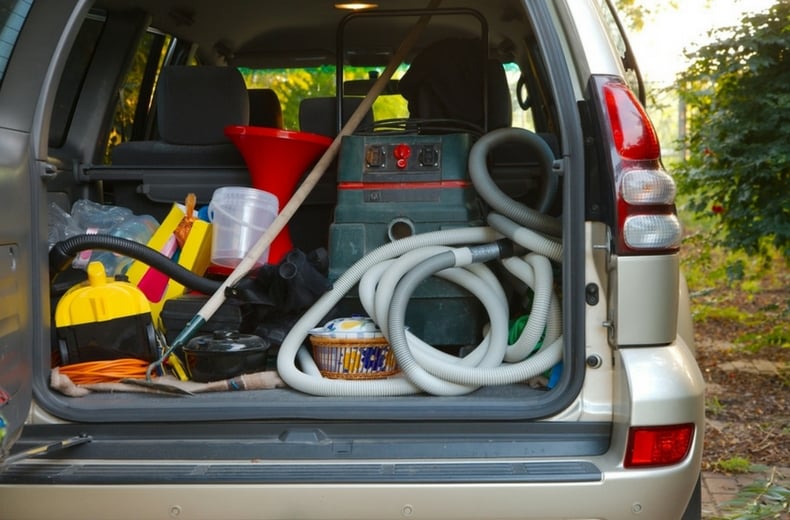
Motor manufacturers are constantly looking at ways to reduce the weight of their vehicles to increase the miles per gallon and to meet the emissions requirements.
So it makes a lot of sense for you to keep the weight carried by your car to a minimum wherever possible.
Carrying extra weight is a sure-fire way to dent your car’s fuel economy. You’ll also put additional wear-and-tear on your tyres, brakes and suspension.
A practical solution is simply to remove any unnecessary objects from the car.
Start with the door pockets and glovebox, then look under the seats for any stray toys or drink bottles.
Moving on to the boot, clear out everything you don’t need. Just remember to leave the toolkit, jack and locking wheel nut key in case of emergencies.
It’s also a good idea to keep a breakdown kit in there just in case you’re unlucky enough to break down.

Avoid keeping heavy loads and loose items in your car when not required and pay careful attention when packing your car for a family holiday or long trip. And don’t forget to remove luggage racks and roof bars when you no longer need them as they will add significantly to the drag on your car and push up fuel consumption.
RAC patrol Chris Burgess
11. Have your car rust-proofed
.jpg)
Modern cars are very rust-resistant, but metal corrosion is the number-one killer of vehicles built in the 1990s or before.
Once it sets in, many simply won’t be economical to repair.
If you see rust spots on your car, don’t wait for them to develop – at the very least, cover the exposed bodywork with touch-up paint before getting it professionally resprayed.
Applying a stone-deflecting film to the front of your car could prevent paintwork damage in the first place.
You could also have the chassis properly rust-proofed, which includes filling the cavities with a waxy substance designed to prevent water ingress.
Like all the tips here, it could save you money in the long-run.
12. Resist the temptation to modify
Modifying your car is likely to make it less reliable and shorten its life.
Tuning the engine for more power puts extra strain on other components, including the brakes if you drive faster as a result.
Stiffer, sportier suspension also causes additional wear to the chassis, subframes and bushes.
Remember too, that money spent on modifications probably won’t increase the value of your car.
Indeed, the opposite is often true. Since depreciation is frequently the biggest cost involved in running a car, reducing the resale value shouldn’t be taken lightly.
13. Avoid driving over potholes and rough tracks
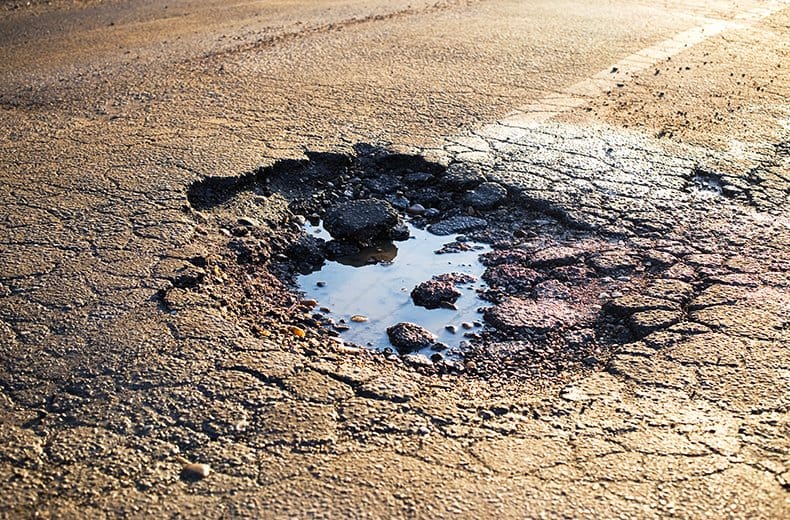
Potholes wreak havoc on your suspension, tyres and exhaust.
The hard edges found on poorly-maintained roads can lead to sidewall bulges, tread separation and in some cases they can deflate tyres too. When driving over crater-like holes, suspension can become misaligned and shocks damaged.
Deeper holes may even scrape catalytic converters leading to holes and a loss of power.
Where possible, it’s best to take roads with smoother surfaces to avoid wear and tear.
Find out how to report a pothole and claim for damage.& exhaust repair
14. Use your brakes to reduce speed rather than shifting gears down
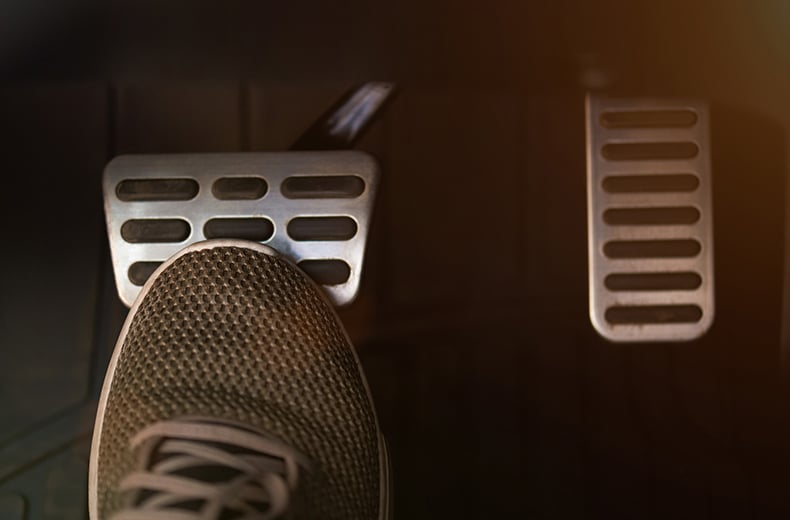
Engine braking, or shifting gears to reduce your speed, can damage your drivetrain, especially the clutch and transmission.
Using your gears to brake when travelling, especially at higher speeds, can shorten the lifespan of your engine. The damage will be even worse if you shift down multiple gears.
Your brake pedals are your best friend when preventing damage to your gearbox and should be your first port of call when reducing your speed.
15. Keep your car clean
We all know people who never wash their car (and perhaps you’re one of them!), but keeping your car clean isn’t about vanity: it can significantly extend your car’s life, too.
Grit gets into moving parts and the chassis, leading to accelerated wear and corrosion. Bird droppings can play havoc with paintwork, and winter road salt is especially corrosive (so make sure you know what to do when stuck behind a gritter!).
Automated car washes have stiff brushes that may leave fine scratches – plus they miss bits, too. Whereas a hand wash, or DIY job is usually much more thorough.
You’ll need a pre-rinse before taking on a deeper clean and remember to use a proper car cleaning solution rather than washing-up liquid before drying the car with a soft chamois.
A yearly polish will provide a layer of protection and prevent rust from spreading.
It’s also important to keep the inside of your car clean with a microfibre cloth and to remove any dirt and crumbs from floor mats.
Using a protective spray on the dashboard plastics reduces the likelihood of cracking or discolouration, while placing a sunshade in the windscreen on bright days helps too.
Read more about how to wash your car.

It sounds obvious but keeping your car clean and the bodywork sound will help maintain its condition and keep its value when it comes to selling and trading up to a new vehicle.
RAC patrol Chris Burgess
16. Avoid resting your foot on the clutch and your hand on the gearstick
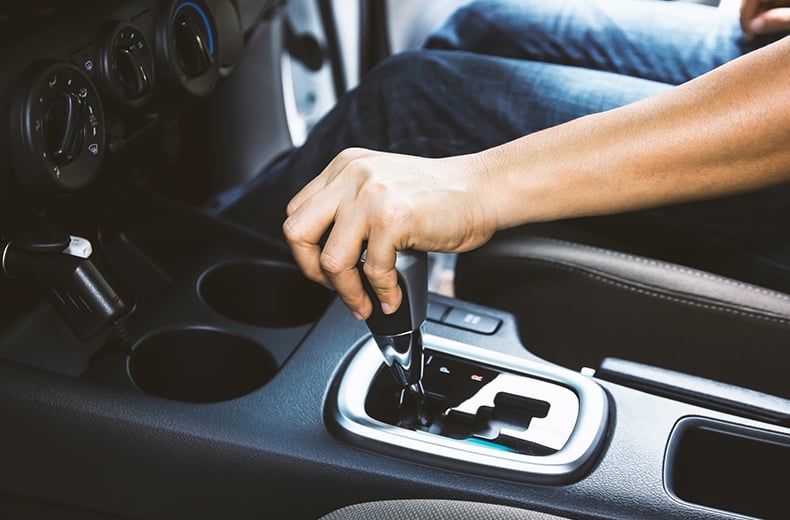
Some drivers are inclined to drive with their foot resting on the clutch pedal. This pushes the clutch release bearing in contact with the clutch cover, leading to unnecessary friction. Over time, the clutch can wear out prematurely.
Similarly, it’s tempting to rest your hand on your gearstick between gear changes, but this applies pressure to the selector fork and other internal parts. The added friction speeds up wear and tear on the gear box.
Try to get into the habit of moving your hand onto the steering wheel and resting your left foot elsewhere in the footwell instead.
17. Don’t run low on fuel
When you run low on petrol your fuel pump will draw on air, debris and sediment found in the bottom of the fuel tank in an attempt to power your car.
The unwanted materials can clog the system and eventually corrode your pump and filters, potentially blocking fuel and preventing your car from starting.
Owners of diesel cars should be particularly cautious of low fuel levels as the powerful injectors in their engines draw large quantities of air into the system, which can prevent the engine turning over.
Keeping fuel levels high can avoid expensive repair bills further down the road.
- Check RAC Fuel Watch for the latest fuel prices in your area
- My fuel light came on – how many miles can I go?
- Does fuel go off? Old fuel and fuel storage questions answered
18. Don’t scrimp on parts
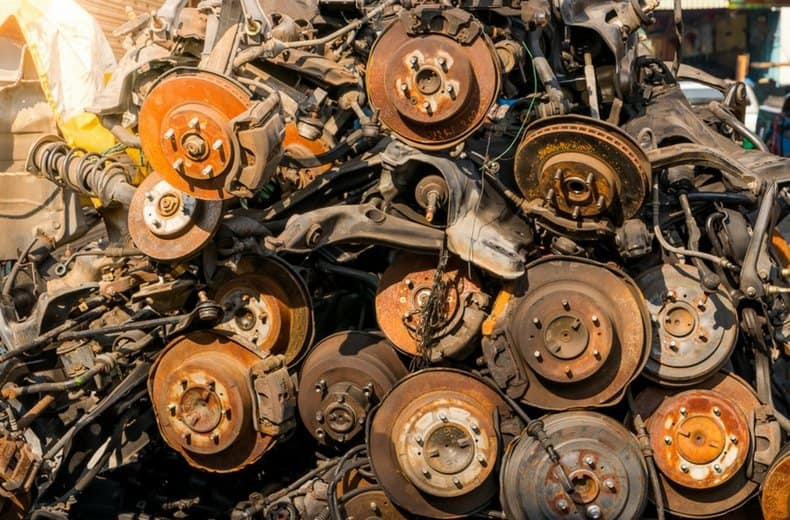
Manufacturers cover millions of miles and spend billions on research and development to ensure their cars are as reliable as possible. So why put that in jeopardy with inferior-quality ‘pattern’ parts just to save a few pounds?
Using original parts could actually save you money in the long-run by keeping your car on the road. And when it comes to classic cars in particular, using original parts is key to future value.
Giving your car the best also applies to the fluids you use.
Look up the engine oil recommended in the handbook and, especially if you have a performance car that needs ‘premium’ fuel (e.g. super unleaded), use it. That’s what the car has been designed and developed for.

The RAC only uses quality parts either from the original manufacturer or equivalent replacement parts and we would recommend you do too to keep your car in the best condition and help maintain its value.
RAC patrol Chris Burgess
19. Check your warning lights immediately
It can be easy to ignore warning lights, especially when there doesn’t appear to be any difference in the performance of your car when they illuminate.
However, leaving problems unchecked could mean a premature end for your car.
Your engine, braking and power steering lights indicate some of the most urgent faults that could lead to expensive repair bills or worse, an unsafe driving situation.
While brake and steering problems will reduce your control of the car, the engine light could turn on for a number of reasons. A loose filler cap or the far more concerning, contaminated catalytic converter are all flagged by the same light, and it’s best to get anything you’re unsure about checked right away by the experts.
Trust an RAC-approved garage to offer a reliable service.
Remember, the same vigilant approach around unusual car noises will also help nip problems in the bud, and could add years to the lifespan of your car.
Keep on top of what your car dashboard warning lights mean with our guide.
20. Make simple and regular checks
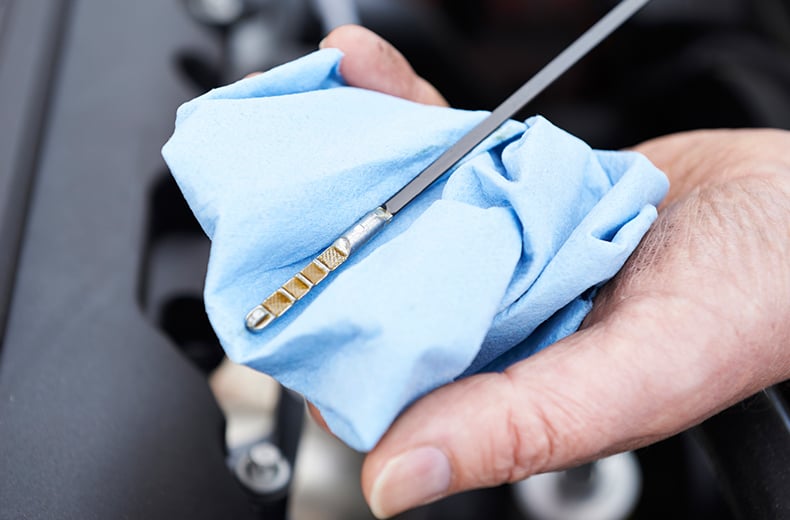
One of the most effective ways of adding to your car’s lifespan is also one of the easiest: routine checks.
A list of essential DIY inspections will flag problems before they develop into a more expensive repair bill and could help you to stop complications arising in the first place.
We recommend checking these as regularly as possible, perhaps every two weeks:
- fuel
- oil
- rubber (tyres and wiper blades)
- coolant
- electrics
- screen wash
- engine air filter
- spark plug (petrol engines only)
- brakes
- air conditioning
- interiors
- exteriors
For more detail, check out our guide to simple car maintenance checks you should definitely be doing.
If your MOT is due or if you would like to book your vehicle in for a full car service, you can book online with your local RAC Approved Garage today.
Get 30 driving tips that will save you money
Running a car isn’t cheap, but there are some easy things you can do to keep your costs down. Get these tips and more useful driving articles sent straight to your inbox now.


Services we offer
- Breakdown Cover
- European Breakdown Cover
- Motorbike Breakdown Cover
- Electric Car Breakdown Cover
- Caravan, Motorhome and Campervan Breakdown Cover
- Business Breakdown Cover
- Van Breakdown Cover
- RAC Approved Garages
- Vehicle servicing
- Vehicle repair
- MOTs
- Mobile mechanics
- RAC Tyres
- RAC Approved Dealers
- RAC Shop
- myRAC app

